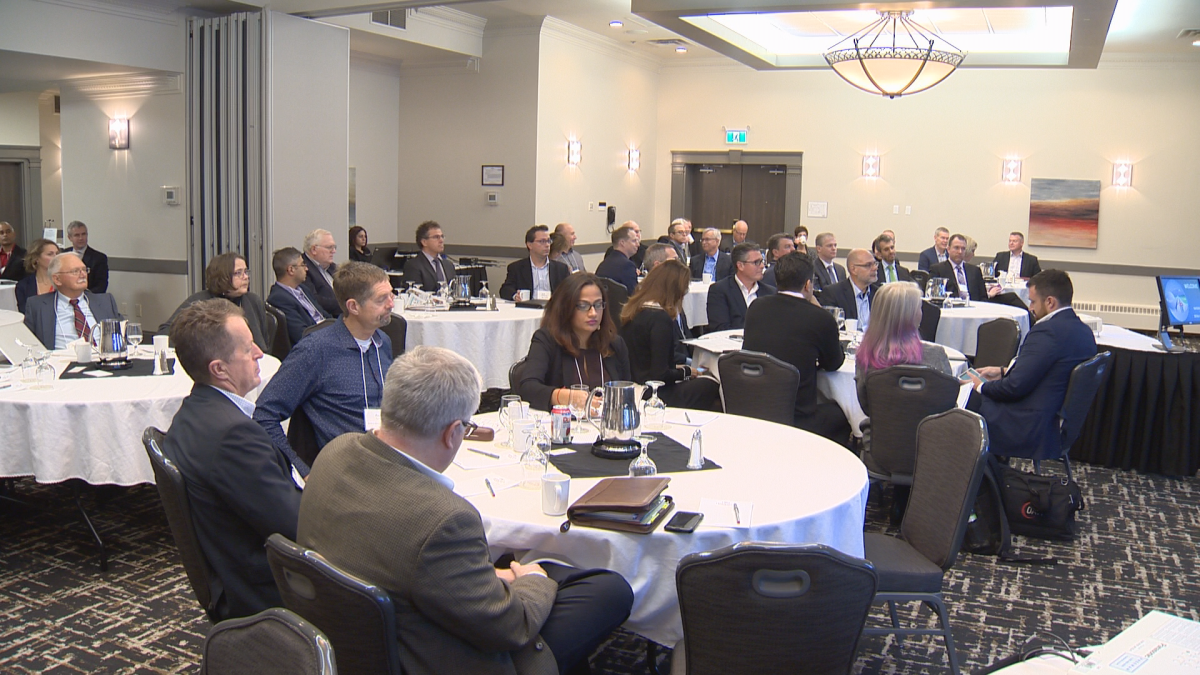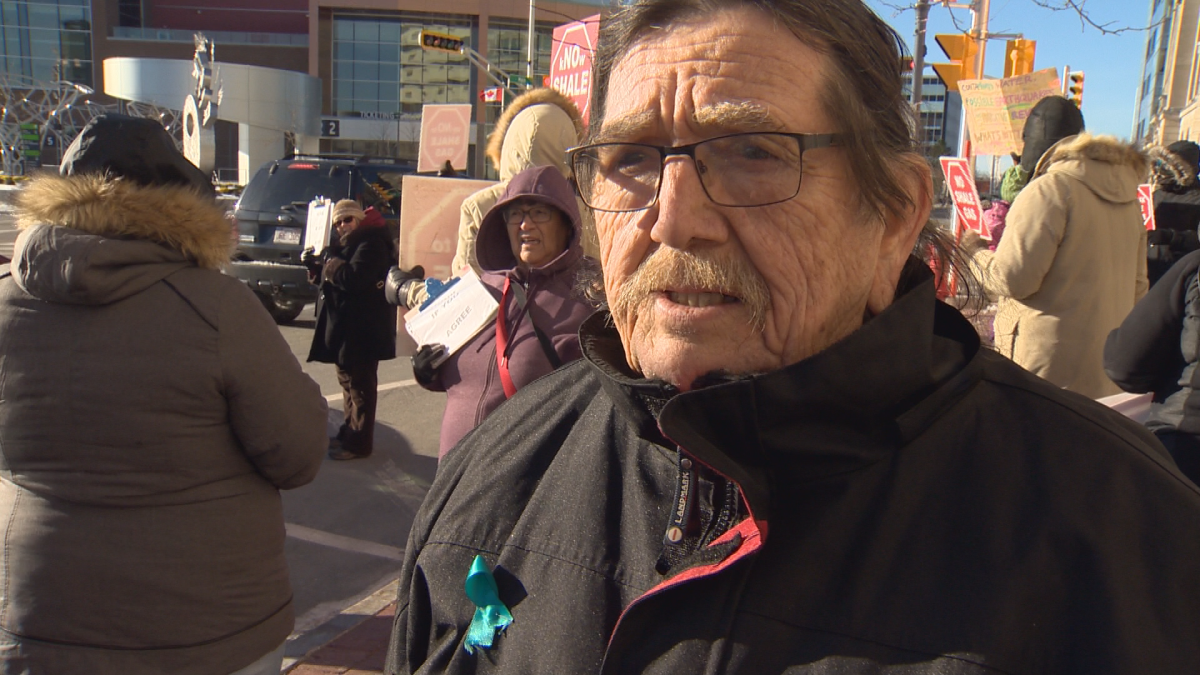Energy officials were met with opposition outside a panel discussion in Moncton on Thursday.

The session was held to discuss the state of the natural gas supply beyond 2018, when they say Sable Offshore Energy Project is expected to close.
However, concern from the Maritimes Energy Association was surrounding transportation of the gas — not how much there is.
READ MORE: Sussex-area MLA pushing for partial end of New Brunswick fracking moratorium by Christmas
“The challenge that we have is to move the gas into the markets,” says Ray Ritcey, who is CEO of the association.
“Depending on certain times of the year — most notably the coldest day of the year — there are bottlenecks that have to be accommodated and ultimately removed to have that gas flow here freely.”
Officials say supply is not a concern, as they can turn to producers in western Canada or in the United States.
But for protesters outside, they’re hoping the fracking moratorium in New Brunswick isn’t lifted, and renewable energy is looked at instead.
“To frack, you need to contaminate all this water because you’ve got to inject all the water to get at the shale gas,” says protester Paul Bossé.
“The Supreme Court of Canada has decreed that if you’re going to do any extraction of any kind, that you have to have consultation with Aboriginal people,” says Kenneth Francis, of the Elsipogtog First Nation’s Kopit Lodge.
The lodge was established and directed by a Band Council Resolution to be the “official consultation body regarding any resource extraction issues in this community’s traditional territory.”
A topic Ritcey says it is separate from Thursday’s discussions, but acknowledged the newly sworn-in provincial government needs to have the right consultations with the community.
“If the new government in New Brunswick wishes to raise the moratorium that’s in place, that’s a good thing,” he says.
The challenge to obtain gas from western Canada and the United States is the transportation and possible additional costs.
“The extra cost for pipeline tolls is offset by the lower cost of the actual gas that we can get out of Alberta, for example,” says Gilles Volpé, who is the general manager of Enbridge Gas New Brunswick.
Volpe says supply in Alberta is currently cheaper than local production.
But increased costs wouldn’t be a concern for New Brunswick-based producer, Corridor Resources Inc., according to The Maritimes Energy Association.
“It’s in the market, so it doesn’t have to incur significant amounts of, or added pipeline tolls, to bring it from other supply basins in North America,” says Ritcey.
- Enter at your own risk: New home security camera aims paintballs at intruders
- High benzene levels detected near Ontario First Nation for weeks, residents report sickness
- Boston Dynamics unveils ‘creepy’ new fully electric humanoid robot
- Fishing vessel with crane, net arrives in Zeballos for orca calf rescue











Comments